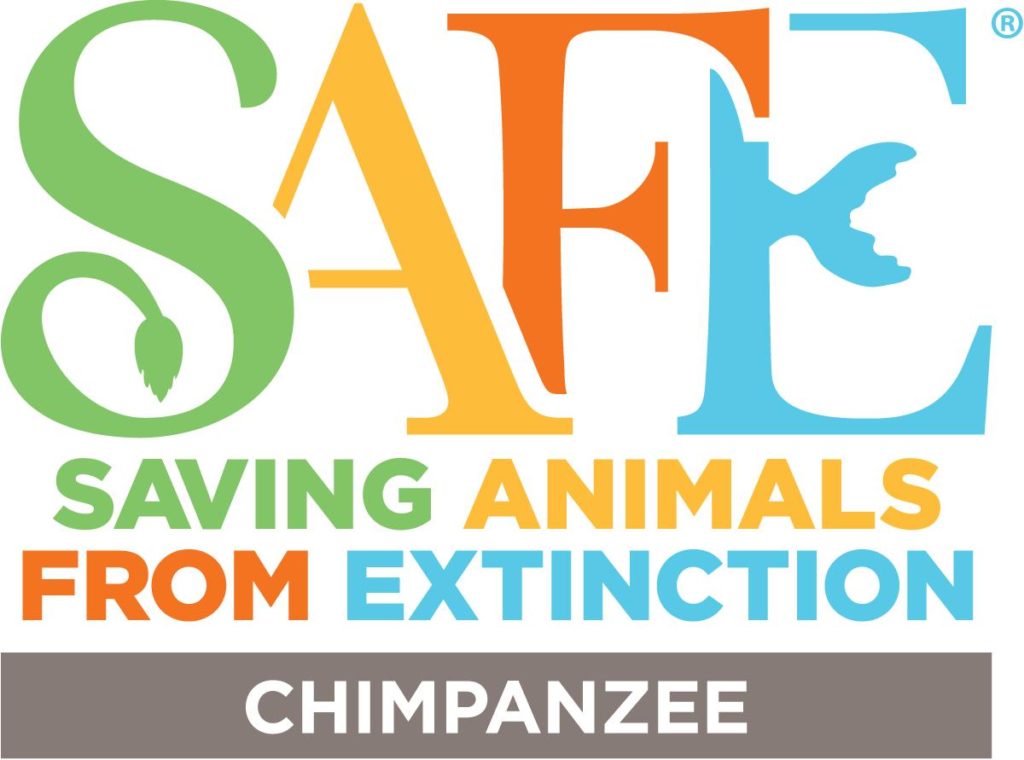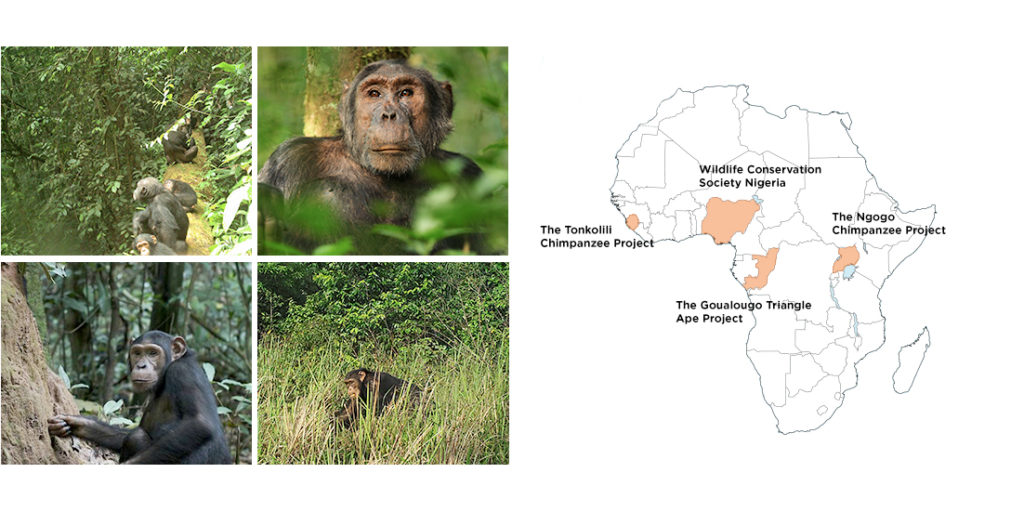
Chimp SAFE – a conservation program

By Heather Balsamico
The mission of Project Chimps has always been to provide lifelong exemplary care for chimpanzees retired from medical research—something that every one of us here at the sanctuary is extremely passionate about. As we continue to grow and bring more chimps to their forever home in the beautiful Blue Ridge mountains, we have begun to look into ways to help chimpanzees on a larger scale, while still remaining true to our mission.
To this end, we have recently partnered with The Association of Zoos and Aquariums (AZA) on a new venture called the Chimpanzee SAFE Program. Chimp SAFE (Saving Animals From Extinction) is a collaborative effort between zoos, sanctuaries and various field partners to raise awareness of the conservation status of chimpanzees while also promoting efforts to fight the extinction of a species that we all love.
The SAFE program states that despite commendable efforts by many talented conservationists over the past 40 years, chimpanzee populations in the wild have significantly declined due to habitat destruction, the bushmeat trade and disease. In some regions, chimpanzee populations have declined by 80 percent in the last 25 years. And sadly, chimpanzee populations have completely disappeared in four African countries.
Wild chimps are in danger
Chimpanzee populations will continue to decline unless the scale of conservation efforts increase. The SAFE program aims to enhance support for chimpanzee conservation efforts by contributing to scientific advances in non-invasive chimpanzee research, engaging visitors at AZA-accredited facilities and equipping several AZA-accredited zoos and certified related facilities with tools to work directly with chimpanzee field conservation efforts. Combined efforts by facilities like Project Chimps and many others will aim to raise awareness of the difficulties wild chimpanzee populations are facing while also supporting on-site conservation programs.

Collaboration will be our greatest tool in saving our closest living relatives from extinction. Working together with reputable partners such as the Ngogo Chimpanzee Project, Lincoln Park Zoo and the Wildlife Conservation Society, we will be able to make improvements in the conservation status of all four subspecies of chimpanzee.
Some projects that the Chimp SAFE organizations are currently focusing on include improving chimpanzee and human relationships in Africa, snare patrols to reduce poaching and habitat sustainability.
Project Chimps Participation
So where does a sanctuary like Project Chimps fit in? As program partners, we have many ways to assist in what is arguably one of the most pressing conservation issues of our time. One of the ways we hope to achieve the greatest impact is through social media. Two of our Caregivers are volunteering their time to spearhead a strong social media campaign to help Chimpanzee SAFE reach a larger audience.
It is our pleasure to relay exciting conservation news and program updates to help promote positive change and inspire current and future conservationists through the Chimpanzee SAFE social media pages. We have made a commitment to assist the SAFE program over the next three years and we hope that our efforts can affect change so that chimpanzees can one day be safe in the wild again.
How can you help? The easiest way to help in our efforts to save chimpanzees in their natural habitats is to follow Chimpanzee SAFE on Facebook and Instagram. You can also visit AZA SAFE to learn more.
While we are supportive of conservation efforts, the Project Chimps’ chimpanzees cannot be relocated to Africa. Unfortunately, chimpanzees who were born and raised in captivity do not have the survival skills that would be necessary for them to live in the wild. Even if training for those skills could occur, introducing competition that did not originate in those areas could cause even more harm to the wild populations.
